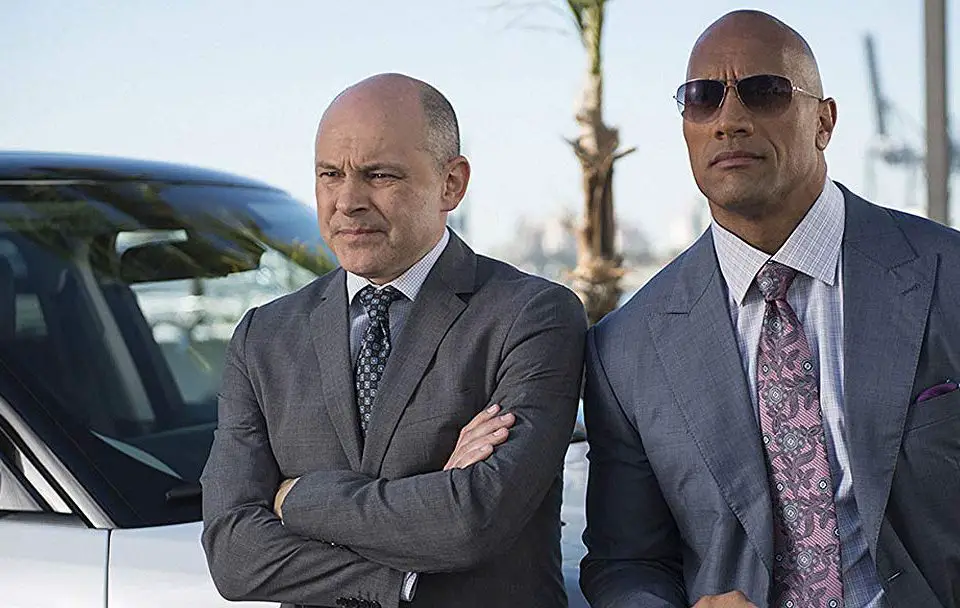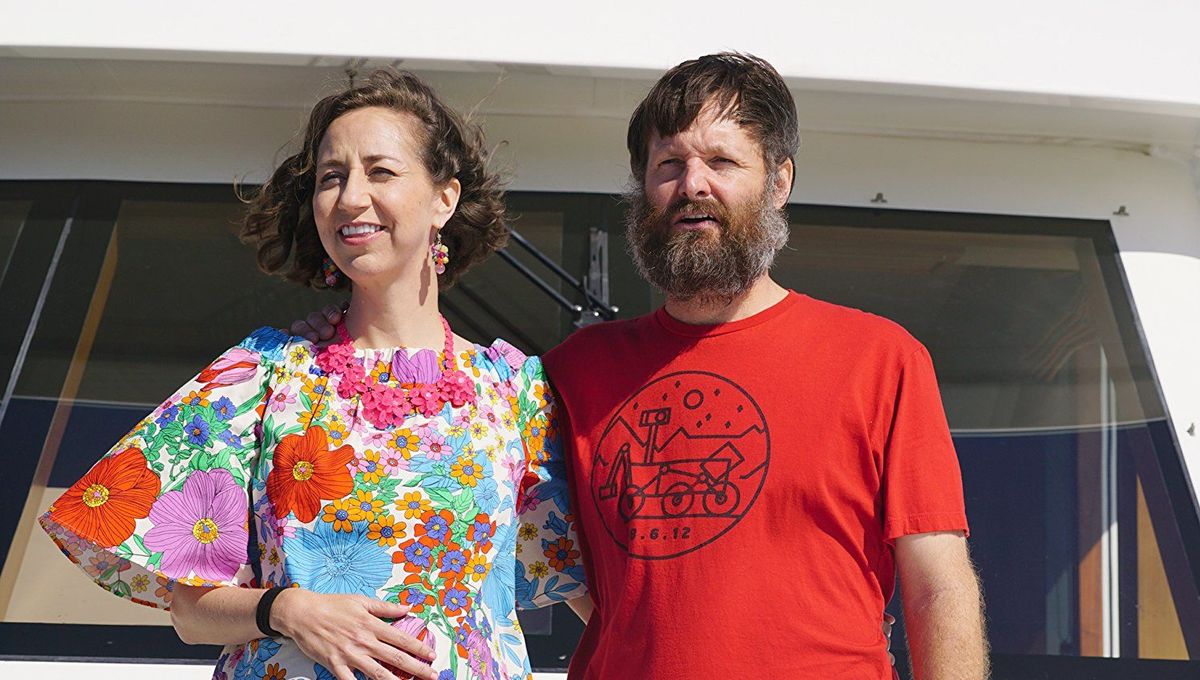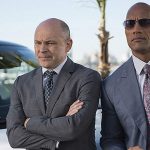Emmy-Nominated Cinematographer Anthony Hardwick Details His Experience On Dwayne Johnson’s ‘Ballers’

From working on documentaries to shooting some of the biggest shows on the air, cinematographer Anthony Hardwick has been making his mark in Hollywood for years. He is nominated for an Emmy for his work on the Season 4 premiere of Dwayne Johnson’s Ballers, the fast-paced HBO series that revolves around the sports industry. Hardwick’s long list of credits also includes Borat, Entourage, The Last Man on Earth, and Shameless.
We had the chance to speak with Hardwick about his experience with the HBO series, and why he isn’t returning for the fifth, and final, season.
FC: So first, I want to congratulate you for the Emmy nomination.
AH: Thank you very much. I appreciate that, thanks.
FC: So, I want to start off with Ballers. First off, how was your… I know that you have a kind of a long list of credits. So, I want us to talk about how’s your approach to the more fast-paced style of Ballers different from your previous projects? Was it more challenging, easy, or just a different experience?
AH: You know, I think Ballers had some similarities to some projects I’ve done in the past. Probably most, in particular, would be Entourage, which you know Steve Levinson, the show creator and showrunner of Ballers, was also an executive producer of that show many years ago.
But you know one, one thing about it is it’s largely location-based show. We had some studio sets that we shot in, but the majority of it was out on location, day in and day out. And we’d just do a little bit on stage for each episode. So, in that respect, it’s a pretty fast-moving show. We do a lot of company moves and working in practical locations almost exclusively, which I really enjoyed. I mean I think that makes it kind of more fun than being on a stage all the time.
FC: Of course. Of course.
AH: Yeah, so that’s the first thing I’d say about it. And I think the show like Ballers, one thing that’s very fun about it, in seasons three and four within the show, they transitioned from Miami to Los Angeles to be the primary location and base for the show. And so, we get to shoot in a lot of iconic Los Angeles locations and showing sort of the more glitzy side of life in Los Angeles- Malibu mansions overlooking the ocean, for example. Sort of fancy restaurants and bars and just in general kind of the High life portion of living in LA, I guess.

FC: Nice. Nice. I will get back to the location type thing later on for another question for another show you worked on, but just to continue on Ballers. So, of course, Dwayne Johnson is huge, he’s a big movie star, but he’s also got a physically pretty large presence on screen, especially mixed with probably more normally size co-stars. I was wondering, when you have a scene with him, with his partner, is there different… do you approach it differently to other scenes? Just because you know it’s Dwayne Johnson?
AH: Well, I wouldn’t say we approach it differently, but yeah, Dwayne is a… he’s a huge presence, both literally, physically, but also, his personality is an extremely charismatic guy. I mean he’s a movie star for a reason and when he’s in front of you and on camera he just lights up, and he’s just fascinating to watch and is a very good actor. So, I wouldn’t say I necessarily approach anything differently with how we shoot with Dwayne, but he’s… everything about his character, Spencer Strasmore is impressive- his clothing and the wardrobe that’s designed by Robert Mata, he’s fantastic wardrobe stylist and costumer and designer. From the clothes, to the cars he drives, to the company he keeps, he’s just an interesting character. He’s hard to shoot in anything other than an impressive way, if you will. I mean his face, first of all, takes light beautifully and, so, he doesn’t have a bad angle. And he’s just as you know and as you’ve noted, his sheer size and presence is noticeable. So, that’s about all I can say about that I guess.
FC: All right, sounds great. So, as I mentioned with the location, I know that you did work on The Last Man on Earth. That’s correct?
AH: Yeah, I did one season of that, season two of that show.
FC: All right, and I’m kind of a big fan of that show, kind of sucks it was canceled. But my question is, I know since it was taken in a post-apocalyptic world, how would… did you find a hard time maintaining that aspect, also making it seem like this is also a comedy, so for the kind of lighthearted in a sense, in this post-apocalyptic world?
AH: Well, first of all, yeah, there were challenges in shooting a show that supposed to be in a post-apocalyptic scenario, where essentially all animal life on the planet is gone, with the exception of the characters that exist in the show and some animals that make their way into it like cows and insects in various episodes. But yeah, everything else is supposed to be gone. Right? So shooting in Los Angeles in California and trying to emulate population free urban zones is difficult. So, there’s certainly special effects that are involved. We remove cars from freeways in certain scenes where you see those kinds of overlooks. We have to do some pretty careful sound editing to make sure that birds chirping and insects and things, that you might hear otherwise in a normal background setting, are eliminated from the soundtrack and also on camera where again, a bird that flies through a frame meter. It has to be cut around, or they do some special effects to remove them. So, there are those challenges.

But you know, as far as the subject matter goes, it’s a dark comedy. And I mean Will is so funny. He’s incredible and so are the writers, but there is something absurdist about the idea of being one of the last people on the planet. So, I think it is good fodder for comedy. Yeah. And they did an amazing job with that.
FC: Of course. Of course. Then as I said, I’m a big fan of that show, sucks it was canceled, and I do know you shot in California, if I’m not mistaken?
AH: Yeah. We shot… yeah, season two was kind of a mix between, I guess in the show they go to Malibu, and they take a residence in a house in Malibu. But they also went back to Tucson for parts of it. And even one section is supposed to be off of Miami in a boat. But we shot all of that in and around Los Angeles and Long Beach and places like that in Malibu, as well as, on stage.
FC: All right, I’m going to assume it’s pretty hot.
AH Hot as in temperature-wise? Yeah, California can get pretty warm, and you get up to the places like Chatsworth and Santa Clarita in the summer and it does get warm. But yeah, that’s all par for the course.
FC: So, okay, overall you had a pretty extensive credits, like line of credits. I want to ask you, since you’ve worked in both feature films and television series, is your major differences between them of how you approach each one and if so, do you have a preference?
AH: Well, you know, primarily the features I’ve done have all been kind of unorthodox features. They can like Borat and Bruno largely, they’ve been documentary-style work. So, my early days as a cameraman were indoctrinated. I shot a number of documentary films. And starting out, I actually did some commercials back in those days, that largely were… the ones that I did, were in the documentary vein. So, those I can’t really speak about features per se other than the texts that I’ve done, which I don’t think are representative of the typical features. So for me, yes, doing dramatic television work has been vastly different than those features that I did. But mainly because television shows I’m doing now, single-camera work, is kind of a little bit more what a feature would be like, if you were doing a dramatic feature or a comedy feature in the normal realm, single-camera style, but with the exception that we’re probably doing far more pages of work per day than you would on a typical feature.
And that’s really the big difference, I think, between TV and features, is the piece of what you’re trying to get done. A feature… let’s say it’s an hour and a half to two hour-long feature, on a short schedule, you might do that in four or five weeks or typically nine weeks or longer for a bigger project. We’re doing half-hour or an hour in five to seven days, typically. So, you can just do the math and figure that it’s that much faster.
FC: Yeah, I just find that really interesting. This is how you worked through, of course as you said, documentary-style into these comedies like dramas, and I just find that really interesting. Let’s go back to a Ballers. I do want to know if there’s going to be a fifth and final season. I’m just going to ask, are you coming back for it, or did you work on it?
AH: Well I did. Okay, I did season three and four of Ballers and only due to schedule issues. I didn’t end up doing season five. I wish I could have. I wish I had done it, but it was coming up against another show that I shoot, Shameless. And for a variety of reasons, I had to make a choice between one or the other. And I chose Shameless this year, because I was a very generously offered one to direct, in addition to shooting the season. So, that’s what we’re still in the middle of now. We have another couple months to finish up the season. And so, I didn’t do season five. But yeah, I’ve heard, I just heard, actually the other day for the first time, that a season five will be the last season of Ballers. So, I’m sad to hear that if that’s the case. But you never know. I mean I know Dwayne made that announcement. There might, I guess, possibly be some version of the show that might not have him in it, but I don’t know.

And, would I ever do it again? Absolutely. I mean the people involved in that show, top to bottom, everybody was just the greatest sort of cast and crew and producers and cast that I’ve worked with. So, I would certainly do it again.
FC: Of course. And of course, you know, getting all the stars, the crew together continuously that’s probably really hard and difficult. So, I can imagine, five seasons already a lot in that case, especially with the Rock. So, I like to ask this for like a lot of the talent, cause a few talent’s I’ve already interviewed so far. I do really like to ask this question, specifically in your field as the director of photography, to new people, to people who want to get into the industry, whether it be a TV or film, what… maybe a few little bits of advice, what would you first say to them?
AH: So specifically for people that are interested in cinematography or just in general?
FC: I would say cinematography.
AH: Well, I would say that the interesting thing about this business and in particular, I guess, cinematography is that there’s no one route in to finding your way to doing it. I know that for me, I took what was at one time, a sort of somewhat traditional route. I entered through the camera department. I worked at a camera rental house and then became an assistant camera person. Got into the union and started working on all manner of productions as an assistant. And then bumping up from a second assistant to a first and then operating and then DP’ing. But lots of people go into it from other routes, some through photography, some through being an electrician, or sometimes a grip, all kinds of roots into it.
So, it’s an interesting industry that way. There’s no set way to get into it, and it’s probably difficult for everyone who wants to try to get in. Unless you’re born into the industry, and you’re lucky enough to maybe have a father or mother or something grandfather, grandmother who’s been in the industry. It’s difficult to get that break. But, I would say, to study as much as you can in terms of watching films, watching television shows, analyzing them for the lighting and composition, going to museums, looking at great paintings.
I was always interested in photography, as well. So you know, keeping track of that and going to photo exhibits. Just try to train your eye for composition and lighting and start to learn what it is that interests you, what drives you, and what you’re attracted to, and then shoot a lot of skills. You know, I mean these days you can shoot motion stuff as well, much more easily than when I started out, with all the digital cameras now and most DSLRs and mirrorless cameras can shoot video, as well. So, I would say, you know, in my day I was shooting a lot of skills and loved photography. I’d still recommend that to help train your eye, maybe shoot a little bit of a digital stuff, as well, with your friends and make short films. That’s the main thing. Start to learn your craft and then somehow you’ll figure out a way into the industry and hopefully get to do what you want to do.
Ballers Season 5 is currently airing on every Sunday on HBO.

